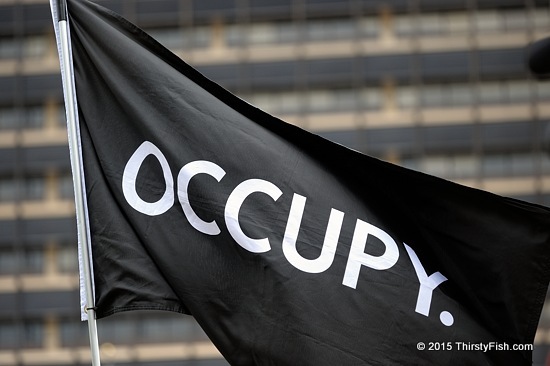The Battlefield

In one of his speeches, Malcolm X stated that: "The greatest mistake of the movement has been trying to organize a sleeping people around specific goals. You have to wake the people up first, then you'll get action". More recently, the Occupy Movement definitely changed the discourse on issues such as income inequality, and one could argue that they are still doing it. What they could not accomplish was to "wake the people up" on a mass scale.
The street or the halls of Congress are not the real battlefields in the war to actuate meaningful change that addresses the issues of our age. First and foremost, the battle is over education and information. The adversaries, the elites who control corporations, the media and governments, understand this. Hence, a real education is a threat to them. What they are looking for are highly trained and technically educated workers, who are smart enough to do assigned tasks and yet heedless enough not to ask certain questions. And universities are providing it for them.
Communicating rational ideas presupposes a rational, critical thinking audience. But the current education system discourages critical thinking, and promotes conformity. When Bill Gates states that his push for Common Core Standards will "improve education", "improving education" is not what's on his mind. In fact, teachers across the country are protesting Common Core for ruining education. With both high school and college "education" functioning as an adverse force against any meaningful change, social movements have to come up with new ways to "wake people up".
The task of "waking people up" is a difficult one - even when people are not exposed to a lifetime of propaganda. If it were easy, the likes of Moses, Buddha, Lao Tzu, Jesus and Mohammed would have more than limited success, lasting relatively long periods. After all - we are told - they had The One to back them up. Despite all that, Malcolm X got it right. If there's to be any meaningful action, people have to be woken up. There is no other apparent way or a shortcut.
Henry A. Giroux's recent article on the state of higher education in the U.S. is well worth reading.
Posted
- Tue 2015-03-10
Captured
- 2012-06-30
- Philadelphia, PA


